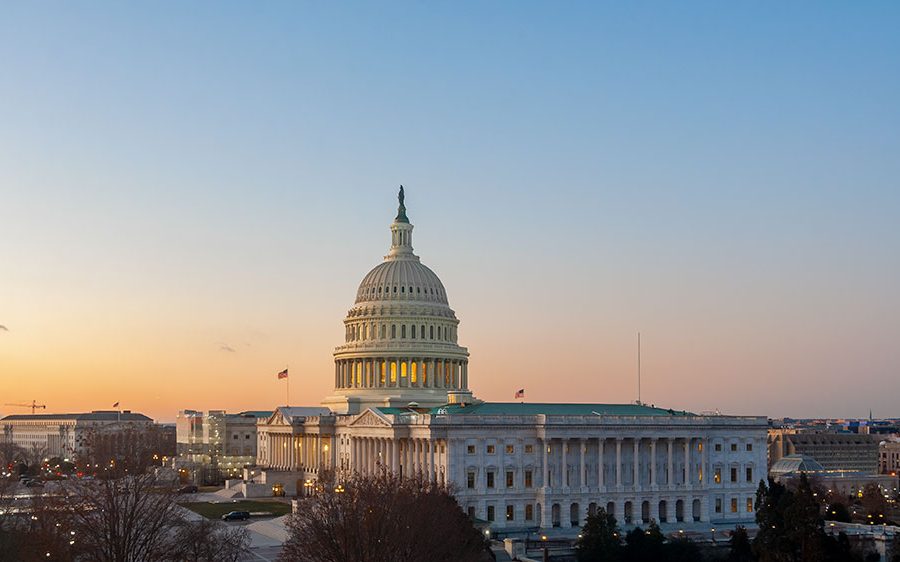House appropriators are planning to offer the Pentagon $694.6 billion for operations, personnel, and procurement, plus another $10.5 billion for military construction, in fiscal 2021.
The Defense Department funding proposal is $1.3 billion higher than DOD received in fiscal 2020, but nearly $4 billion lower than the Trump administration requested in its 2021 request. It spans $626.2 billion for the base account and another $68.4 billion to fund ongoing combat and deterrence operations in the Overseas Contingency Operations account.
“The bill ensures that our service members are well-trained and equipped and that they are prepared for future military needs,” House Appropriations Committee Chair Rep. Nita Lowey (D-N.Y.) said in a July 7 release. “It also includes the full funding necessary to provide service members with a 3 percent pay raise. We have the most capable and advanced military in the world, and this bill honors their mission by adequately funding programs to care for service members and their families, and by including provisions to end the Trump administration’s theft of defense funds to pay for a wasteful border wall.”
Rep. Kay Granger (R-Texas), the committee’s ranking member, on July 6 voiced concern that “controversial language and questionable funding priorities” will derail bipartisan spending agreements this year.
According to a summary of the House defense appropriations subcommittee bill released July 7, lawmakers would fund 333,700 Active-duty Air Force jobs as requested, 900 more than it has now. They also allow slight growth to 70,300 Reservists and 108,100 Air National Guardsmen, as requested.
The bill offers $2.5 billion to continue standing up the Space Force, but blocks money from being spent to transfer parts of the other armed forces into the Space Force until Defense Secretary Mark T. Esper confirms it won’t hurt the department.
The legislation plans to fund 91 F-35 Joint Strike Fighters at $9.3 billion, 12 more than requested, plus 12 F-15EX jets for $1.2 billion. The subcommittee wants to buy 15 KC-46 tankers for $2.7 billion, while others on Capitol Hill want to shrink the buy because of problems with the Remote Vision System.
It also denies the Air Force’s plan to stop building MQ-9 Reaper drones and gives the service $344 million for 16 aircraft, and moves ahead with a 19-piece HH-60W combat search and rescue helicopter buy. U.S. Special Operations Command’s armed overwatch program got a nod as well.
For space programs, the GPS enterprise would see more than $1.7 billion for various upgrade and procurement efforts. National Security Space Launch could see about $1.5 billion for launches and development of future rocket technologies, and the Next-Generation Overhead Persistent Infrared missile warning constellation would net $2.3 billion for development.
Lawmakers gave the go-ahead to develop Block 4 follow-on upgrades for Lockheed Martin’s F-35 at $1.6 billion, and fully funded continuing work on the new B-21 bomber at Northrop Grumman for $2.8 billion and Boeing’s VC-25B—the next Air Force One—at $801 million.
Overall, the Department of the Air Force’s base budget would receive:
- $32.7 billion for Active-duty personnel
- $33.6 billion for Active-duty operations and maintenance
- $19.6 billion for aircraft procurement
- $2.5 billion for missile procurement
- $609.3 million for ammunition procurement
- $23.6 billion for communications and other support equipment procurement
- $2.3 billion for Space Force procurement
- $36 billion for USAF research and development
- $10.2 billion for Space Force research and development
- $2.5 billion for Space Force operations and maintenance
Following a prolonged fight over the Trump administration’s use of Pentagon funds to build a wall along the southern U.S. border, the bill would block that practice and require that any unspent wall funds be returned for their original purposes. House appropriators are denying $20 million for the presidential priority.
The subcommittee also wants to give the Army $1 million to rename installations, facilities, and streets that honor Confederate leaders.
Appropriators will likely pass the bill during a July 8 markup session. The subcommittee overseeing military construction and the Department of Veterans Affairs approved its own $250.9 billion legislation by voice vote July 6. Each bill will head to the full committee and the House floor before compromising with the Senate.


